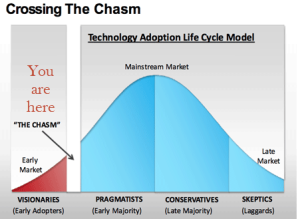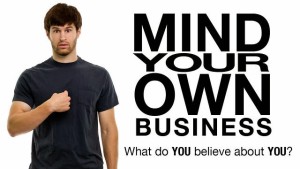Sep 20 2015
DAY 10 – 30 Days To The New Economy
SEE SPECIAL ANNOUNCEMENT IN RED AT END OF POST
Your Role In History As An Entrepreneur
CHARACTERISTICS OF
THE NEW ENTREPRENEUR
Adapted from the book 30 DAYS TO THE NEW ECONOMY written and published by Peggy Salvatore
Many long-standing entrepreneurial success characteristics remain on the front-lines. Reasonable risk-taking and possessing of some mysterious instincts are but two examples. NOW, as we approach the 2020s, other “quieter” ingredients are gaining traction and emerging as higher level success characteristics. Today, Peggy leads us to four of these: Nimble. Flexible. Responsive. Personal.
About 10 years ago, when my three kids were all in high school, I decided to go back to school to fulfill a dream of earning an advanced degree in economics. Okay, geek alert! Yes,I know that not every girl’s dream is to study what most people have always seemed to consider such a dismal science. But it was mine.
A for-profit online university called Cardean University advertised an MBA with a specialization in economics and strategy. The curriculum was developed by professors from The London School of Economics, the University of Chicago and Stanford. And I reasoned that they couldn’t advertise that fact if it weren’t true.
Yet, I still wasn’t sure of the value of an online degree in the real world. I phoned a friend I thought would know the answer. When I asked her if an online MBA would be akin to getting your degree on the back of a matchbook cover (ah, you do remember matchbooks, yes?;).
Okay, so my friend said the credibility issues I was concerned with were no longer the case, and that in the real world, virtual degrees counted just fine. (Eventually, Cardean was sold so my degree ended up being from a bricks-and-mortar school anyway.)
Here I was, attending classes and studying online, and learning real stuff that I still use.
I had classmates all around the globe — many from private sector corporations like General Motors and others from federal entities like the U.S. Army — which had a value all by itself.
I share this here because the Internet has become and remains a legitimate business and educational channel. Unlike the fly-by-night money order, cash-for-gold side street vendor-type people who open their virtual doors with the intention of fleecing the public or churning cash, and whose daily email bombardments we all readily block or delete, I suggest they will not ever gain credibility among credible people. In fact, it’s unlikely they will ever even get as far as the cash-for-gold fleece-master.
The Internet is designed for integrity. Internet Joe needs to have valuable wares he is exchanging for income. If not, he’ll be sniffed out and escorted out of town. So if integrity is the bedrock of business, the Internet is the place where it is most solid. After all, who among us wants to do business with the fleece-master? On the Internet, you probably have less chance of that happening than you do of winning some big-time cash prize at the carnival coming through town.
For Internet Joe, this is good news. The foundational principle of all business is that the owner must have integrity to conduct business successfully and continually. Nowhere is this more likely that in the place where one star versus five stars. Comment boxes and the online star and thumbs-up reviews are available to everyone.
So, if like me, you are concerned that perhaps a virtual business might be less legitimate than a storefront on Main Street, my friend’s “take” on virtual classes was right. The Internet business playing field is for real, and that means you must be, too.
Besides integrity, Internet Joe has a few other characteristics that ideally suit him for success in a rapidly unfolding New Economy.
Internet Joe is:
- NIMBLE: He assembles the pieces necessary to build an online presence.
- FLEXIBLE: He is working his way around obstacles and making adjustments as the terrain changes daily. Updates that change the way his online meeting service functions? He’s on top of those.
- RESPONSIVE: He is always “on alert” for his customers. Customers get answers from his smartphone on the road, his tablet on vacation, and his home office on a 24/7 global schedule. Internet Joe responds with spontaneity!
- PERSONAL: When his name is out there, his Facebook, Pinterest and far more private information is just a click away. Customers know that.
RETURN HERE TOMORROW 9/22 FOR DAY 11
AND THE TRUTH ABOUT INTEGRITY
# # #
SPECIAL ANNOUNCEMENT
Sign up NOW for NOVEMBER 29th (Sunday Night after Thanksgiving for 2 hours) $99 LIMITED SEATING COACHING WEBINAR: “Accelerating Your Business Growth and Development.”
Get fresh, informed, proven insights geared specifically to your business market, your biggest problems, your biggest opportunities.
With Hal and Peggy’s wealth of business coaching experience, you’ll learn what successful entrepreneurs need to be thinking and doing NOW. Simply call 931.854.0474 Central Time: 11AM to 4PM Monday-Friday for details and to reserve your seat!
———-
For more information on Peggy Salvatore’s book: 30 Days to the New Economy [© Peggy Salvatore 2015. All Rights Reserved.] click on ENTREPRENEUR NEWS or visit ow.ly/RysnP for the E-book
# # #
Hal@Businessworks.US Peggy@Businessworks.US
Open Minds Open Doors
Thanks for your visit and make today a GREAT day for someone!














